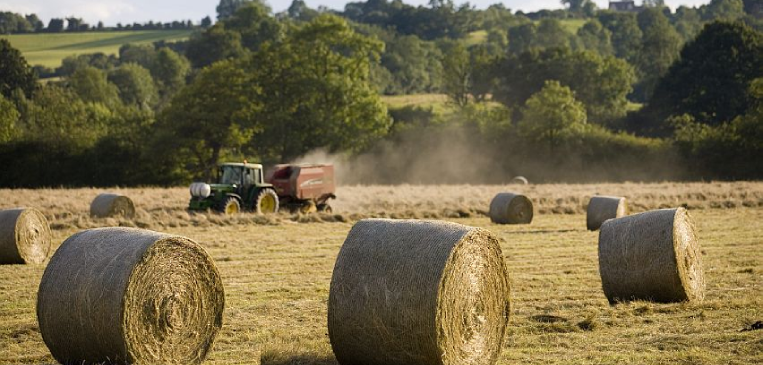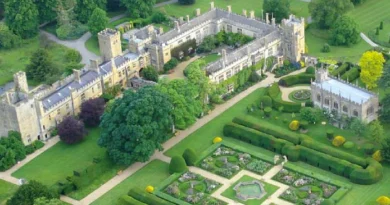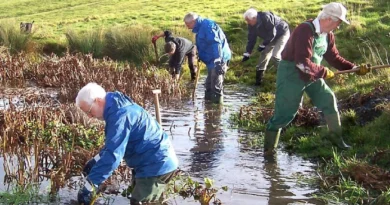3. Farming in the Cotswolds
Farming has always been a crucial part of life in the Cotswolds, although farming and production methods have changed hugely over time as new machinery and technology have been introduced.
Agricultural land in the Cotswolds Area of Outstanding Natural Beauty (AONB) comprises 176,393 hectares (approximately 435,690 acres), which equates to 86% of all land within the AONB. A 2007 survey revealed that there were 3,434 farm holdings in the Cotswolds AONB, with an average size of 51.4 hectares (127 acres).
However, the number of farm businesses is considerably lower as many cover several holdings. Nowadays, farms in the Cotswolds come in all shapes and sizes, ranging from specialist cattle and sheep farms, specialist cereal farms, mixed and dairy.
The main crops grown in the Cotswolds are winter wheat, oilseed rape and spring barley. There has been a 30% reduction in the total area of cereals grown in the Cotswolds since 1990, mainly as a result of an increase in the area of set-aside, as well as oil seed rape. The decline in the area of winter barley is particularly notable.
There are around 11,500 dairy cows, 10,800 beef cows, 23,000 pigs and 258,500 sheep in the Cotswolds AONB, though the general trend has been one of declining livestock numbers. For centuries, the level of agricultural labour in the UK has declined as more efficient new farming methods and new machinery have made farming less labour-intensive.
There are currently 5,021 people employed in agriculture in the Cotswolds, including 3,287 farmers, 256 farm managers and 1,478 farm workers. Between 1990 and 2007, the number of farm workers in the Cotswolds fell by 45%.
The Cotswolds’ best-known farmer is almost certainly Adam Henson, who has become a familiar face on television through his role as presenter of the BBC’s Countryfile programme and through appearances on other TV shows.
Adam heads up the Cotswold Farm Park in his day job, based at his family’s Bemborough Farm near Guiting Power. His late father, Joe Henson, had a long-standing passion for rare breed conservation, which led to the opening of the Cotswold Farm Park in 1971.
Visitors to the farm park can enjoy a range of rural attractions and also have the chance to help bottle feed the lambs and goat kids, hold a chick and experience seasonal demonstrations, including lambing, shearing and milking.
Anyone who fancies the chance to stay on a farm in the Cotswolds may well find the perfect place through Cotswolds Farmstay, which is made up of all sorts of farmers from arable or dairy to smallholders with a variety of rare breed animals.
Participating farms offer a range of activities on or nearby, including woodland and farm walks, hiking, horse riding, golf, cycling, shooting, fishing, bird watching, and fossil hunting. There may also be the chance to help with lambing or milking on the farm. Extra amenities may include stabling and facilities for pets.




